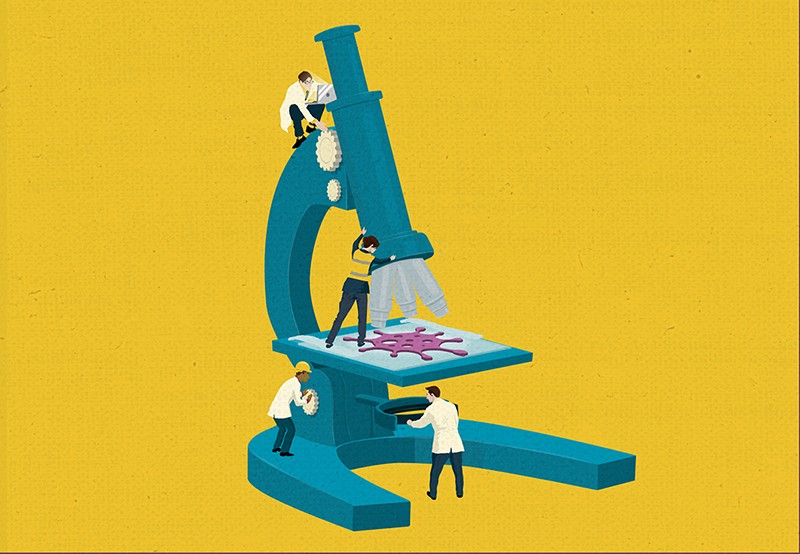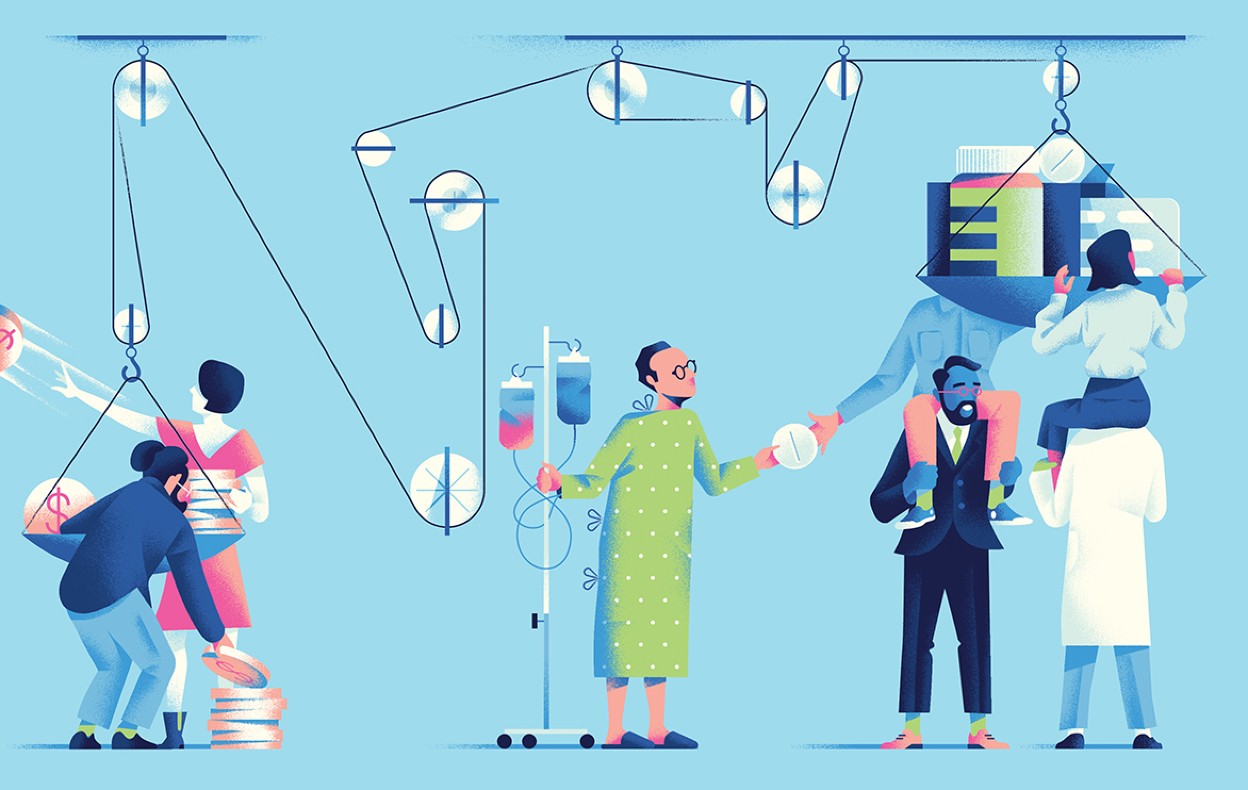By Charalampos Karouzos,
Among the recent top headlines all over the news has been the outcome of a Cancer Clinical trial, which has 100% effectiveness against cancer. As the news presented it, “tumors just vanished”. A novel approach to treating a disease that has been devastating for humankind over centuries and will be even more severe in the future. A sign of hope against a disease we are very far from treating directly. Chemotherapies, surgeries, and other approaches have been important in battling cancer but, with consequences so severe, are hardly considered beneficial to the patient as a person. To be honest, this novel treatment has caused such an immense discussion, as we are desperate to find a way to battle the emperor of all maladies (as Siddhartha Mukherjee named cancer in his famous book).
The clinical research was performed in the Memorial Sloan Kettering Cancer Center, a prestigious cancer research center, established in 1884, in New York. The research team, composed of esteemed leading researchers in the field of Cancer Immunotherapy, utilized a previously known idea to treat patients suffering from a very specific Cancer. The outcome was unprecedented — 100 percent remission state —, without performing either chemotherapy or surgery, although the initial study design included a chemotherapy session. This novel drug falsely presented by the news as a panacea is the first time in human history of an anticancer treatment drug with such high efficacy levels. However, many questions regarding its application in anticancer treatment are raised.

Firstly, the mechanism of action of the drug must be simply explained. Our immune systems have a specific mechanism that restricts excessive over-activation of the immune system to prevent causing more harm than good. This mechanism is active for instance in conditions of chronic inflammation or in cases of persistence of a microbe. The Immune Checkpoints, as they are properly named, act as the limit to a full-scale immune reaction and can be compared to the speed limit systems of cars that prevent speeds over the set boundary to be reached. The scientists inhibited this mechanism by using an antibody that binds to the Immune Checkpoints (anti-PD-1 Antibody). In other words, they forced inhibition of the inhibitor, causing overstimulation of the immune system. The patient’s immune system was allowed to bypass its set limit and fight cancer without a weight holding it back. This idea is not new, but it is the first time that we have had such a positive outcome.
Moreover, the research team used this approach against a very specific Cancer, a mismatch repair – deficient stage II or stage III rectal cancer. It is crucial to understand that there are great differences among different types of cancers, and an approach against one type may have either no effect on another type or even cause cancer promotion. The researchers focused on Rectal cancer patients, which represent around 10% of all new cancer cases worldwide, and the specific type of Rectal Cancer studied represents 5-10% of Rectal Cancers. So, this cancer treatment, without considering the other criteria set by the research team (age of patients, stages of the tumor, etc.), represents 0.0075% of all cancers (!). Although it is a tiny percentage, it is a step forward, a step closer to applying research data in clinical trials with positive outcomes.
One of the main questions raised, after the article was published, is regarding the practical application of the study; what is the practical usage of this approach to treating patients all over the world suffering from that specific cancer? The answer as expected cannot be considered a straightforward one.
In theory, the technical aspect of the treatment is not a major concern. Pharmaceutical companies must replicate the exact antibody against the Immune Checkpoint, and it can be administered to patients. This process of replication is not a challenge and can be managed easily and rapidly. The major issue regarding the approach is the cost and the lack of available data for the treatment.

Health systems are divided based on the budget provider, individuals, or the public. In the private sector, the cost of treatment is almost a neglectable factor, as the financial aspect of it is to be fully covered by the patient one way or another. On the other side, however, in most health systems, where the means of treating people are covered by taxes, there is a limited number of sources available that must be shared with equity, amongst the various cases. The cost of the treatment, although not the major factor of interest, cannot exceed an amount, that acts as a limiting factor for the quality of care available to other patients. It’s unethical for a health system to enforce medical policies treating a specific demographic in comparison to another, however, extremely high costs of treatment can be considered suffocating for the health budget available. The cost only of the drug used in this clinical trial (dostarlimab) per patient is around $100k for a 6-month treatment (U.S. data)! It is evident that even in the higher standard of living countries such a cost cannot be withstood.
Secondly, and most importantly, one of the bases of modern medicine is violated, supposed that the drug is implicated in clinics directly. Modern medicine is based on evidence and is thus referred to as Evidence-based Medicine. Health professionals are not to act based on their personal ideas, beliefs, or individual medical judgment; but on robust data and guidelines provided by the appropriate set of medical directors (ECDC, CDC, WHO). Therefore, more research data must be collected, and guidelines will be formed after careful consideration. This tedious process ensures the availability of high level of care and must be respected to avoid possible severe outcomes.
To conclude with, the development of new drugs fighting cancer is and must be a goal of modern research, as our current available treatment options are extremely limited. This approach, with such a high efficacy is a fundamental step forward to the battle against the “emperor of the diseases”. However, our battle against cancer must be fought using weapons that are accessible to the whole world and not creating another inequality factor among the advanced and developing countries, widening the gap of treatment availability, supporting medical racism.
References
- PD-1 Blockade in Mismatch Repair–Deficient, Locally Advanced Rectal Cancer, The New England Journal of Medicine




